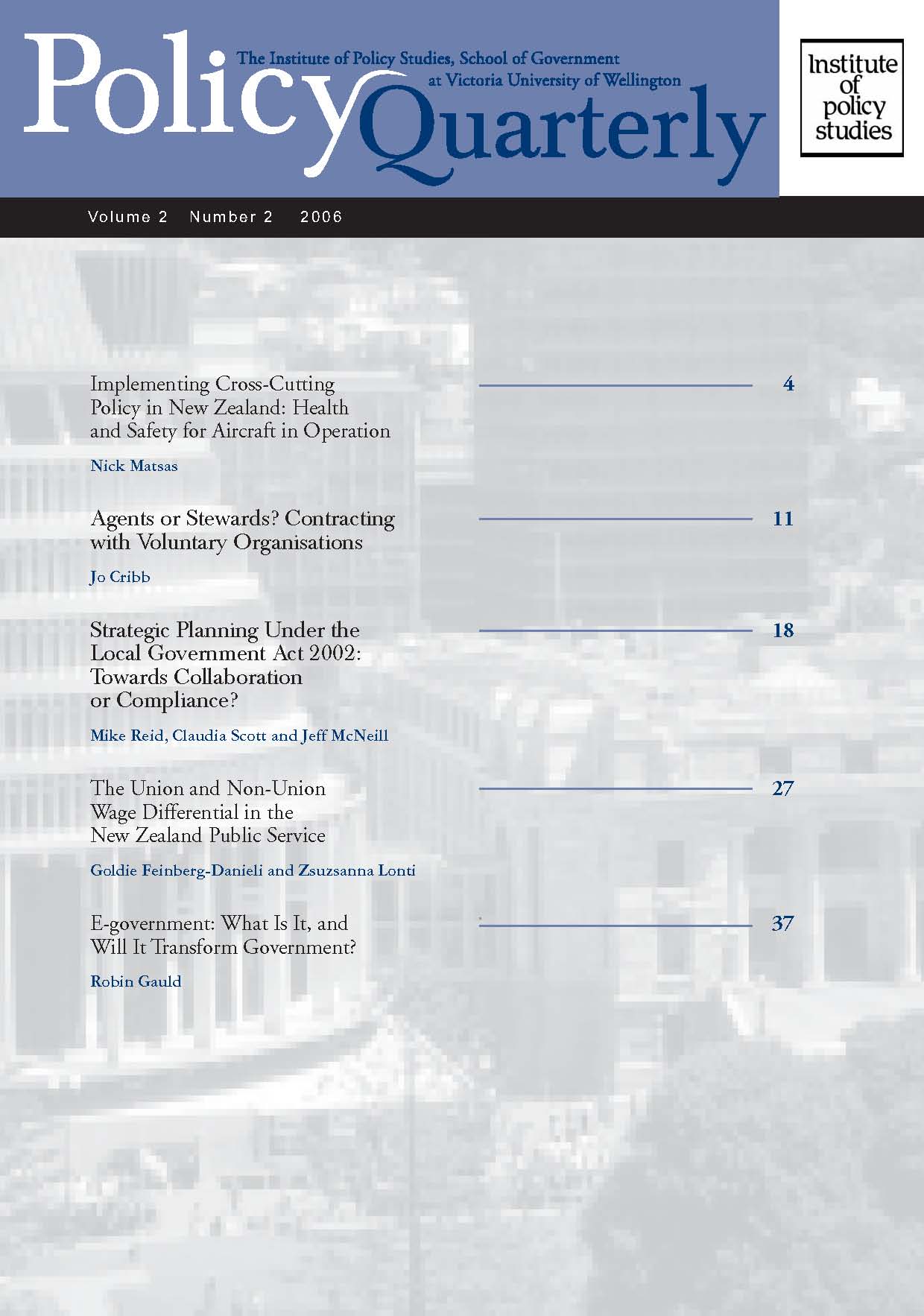E-government: what is it, and will it transform government?
DOI:
https://doi.org/10.26686/pq.v2i2.4193Keywords:
information and communications technology (ICT), e-government paradigm, ‘two-way’ communication, Government Online strategy, DigitalAbstract
Like many trends that influence public policy and administration, ‘e-government’ is a multifaceted and nebulous idea, easily applied to a range of different situations, across the entire gamut of government and society, and with differing intentions. There are wide-ranging claims made for e-government, considerable hopes pinned on it, and substantial commitments – financial and otherwise – made to it. The concept has been embraced by political leaders; it is being used to drive changes to the public sector, and to legitimise investment of public money in information and communications technology (ICT). An important question, however, is what ‘e-government’ is, and what shape an ‘e’ government might have. This article overviews the concept, the developmental phases of e-government and some international and local policy developments, and speculates on the impact of ICT on the future shape of government.
Downloads
Downloads
Published
Issue
Section
License
Permission: In the interest of promoting debate and wider dissemination, the IGPS encourages use of all or part of the articles appearing in PQ, where there is no element of commercial gain. Appropriate acknowledgement of both author and source should be made in all cases. Please direct requests for permission to reprint articles from this publication to Policy-Quarterly@vuw.ac.nz.



